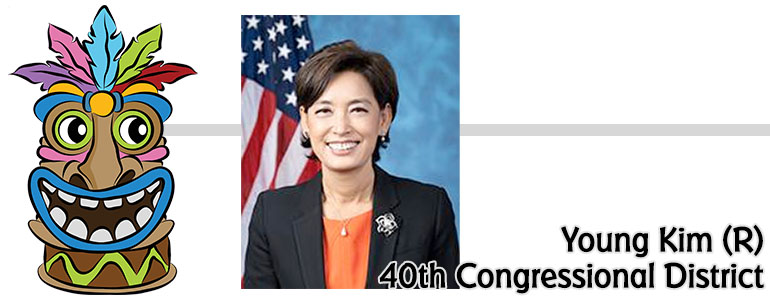
U.S. Representative Young Kim (CA-40) joined Reps. Haley Stevens (MI-11), Jim Baird (IN-04) and Don Beyer (VA-08) to introduce the Data Science and Literacy Act of 2023 (H.R. 1050), a bipartisan bill aiming to support science, technology, engineering and math (STEM) education efforts.
“STEM education expands opportunities for students, grows our economy, strengthens our workforce across industries and boosts our nation’s global competitiveness,” said Rep. Kim. “The Data Science and Literacy Act will equip educational institutions with the tools they need to teach students of all ages and across all regions of the country the skills needed to get good-paying jobs and help our nation win the future. I will always support opportunities for students to access a quality education and achieve their dream.”
“To compete in a 21st-century economy, we need a 21st-century STEM workforce that reflects the diversity that makes the United States the greatest nation on earth,” said Rep. Stevens. “Ever since Michigan’s 11th District sent me to Congress, I have been laser-focused on increasing access to STEM education for more young women and low-income communities. The Data Science and Literacy Act is a critical part of that mission. Data touches everything we do. Data education is integral to bolstering our global competitiveness, unlocking good-paying jobs, and fostering a well-informed society. I am proud to introduce this legislation that helps ensure, no matter their background or zip code, that all students are equipped with the necessary tools and knowledge to prepare them for a career in the STEM fields.”
“As world leaders in technological advancement, it’s essential that we create programs that increase access to data science and literacy education so students from an early age can earn a well-rounded STEM education,” said Rep. Baird. “Improved access to these tools is essential for building tomorrow’s workforce, and I look forward to working with Congresswoman Stevens to get this bipartisan investment in STEM education across the finish line.”
“We live in a world full of data – from the logistics information collected to streamline supply chain operations, to the tracking done by the public health industry to halt the spread of diseases, to the data collected by our smartphones about our everyday lives. As the use of data to optimize operations across industries increases, so does the demand for data literacy in America’s workforce,” said Rep. Beyer. “Our bill would provide educators with the resources necessary to expand access to a quality data science education and prepare students for 21st century jobs.”
H.R. 1050 supports a voluntary program at the Department of Education (DOE) for educational institutions from elementary schools to colleges to apply to for funding to go toward expanding access to data science and literacy education. The bill would require grant recipients to update DOE twice a year on the use of grant funds. Learn more here.
